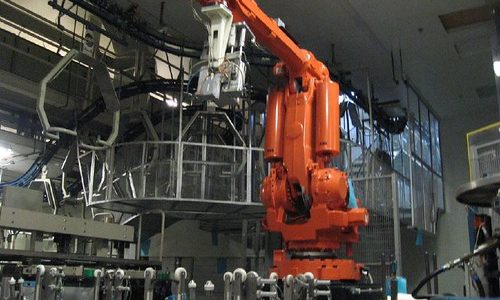1. Myth: Robots are expensive
The up-front costs of automation have long kept small to medium sized businesses away from automation. A new industrial robot will typically cost $50,000 or more. Some now cost half that much, though, and it is anticipated that the price will be down to $10,000 by 2025. Robots — cooperative robots — can already be found at that price. Compared with human workers, robots can be a bargain.
2. Myth: Robots are only used in car manufacturing
Robots certainly build cars, but they are also found in many other industries, from food service to agriculture. Manufacturing leads industries using robots, but you will find them now in construction, health care, and many more work settings.
3. Myth: Robots require a lot of maintenance
You can’t really generalize on this. We specialize in Indramat motion control systems. Many of our clients have had their Indramat machinery in service for decades before they require any service or repair. Indramat units normally require no maintenance. On average, a robot will need maintenance or repair about every seven years.
4. Myth: Robot operators need to be highly trained
Nearly half of robot operators have just a high school diploma. Another 20% have associate degrees. On the job training is usually sufficient for robot operators.
5. Myth: Industrial robots are dangerous
Government records report that there are 30 – 50 robot-related accidents each year in the U.S. Compare that with the fact that robots keep human workers from having to do jobs in dangerous environments, protect humans from caustic substances, and take over repetitive tasks that can lead to repetitive motion injuries, and you can see that the overall outcome from automation is greater safety.
6. Myth: Once you have an industrial robot, you no longer need human workers
This one is certainly not true. While robots can take over some tasks, workplaces still need human workers. Most companies agree that bringing in robots frees humans up for more challenging and creative jobs. In general, automation increases productivity and leads to growth, with additional hiring as a consequence.
7. Myth: Robots can do everything better than humans
Robots can do some things better that humans: faster, more cheaply, more accurately, and with less waste. But robots don’t usually have the dexterity or social skill that humans have. They can’t sew very well or pick asparagus as well as people, and they can’t walk or talk as well as the average four year old. Things may change, but for right now, people can bring robots into most work situations with confidence that they will not take over and do everything better.
If your robots run with Indramat motion control systems, you should have our phone number (479) 422-0390 handy. We are Indramat specialists, and we can provide all the service and support you need.
